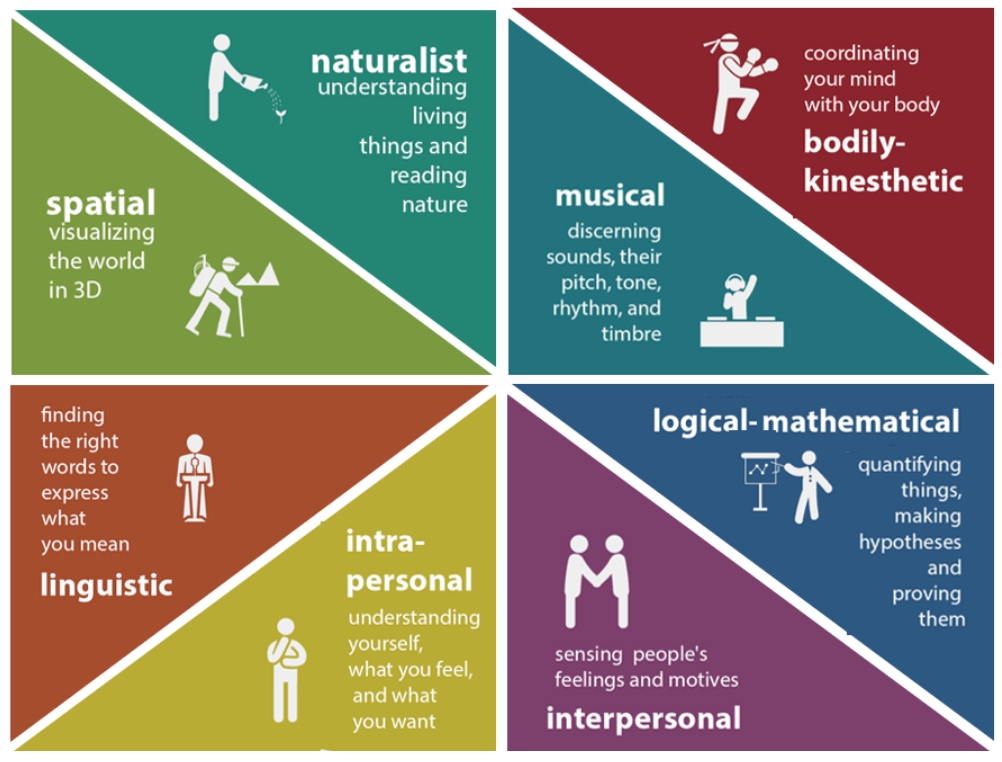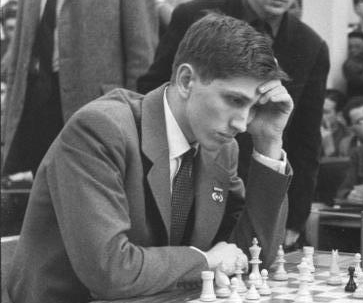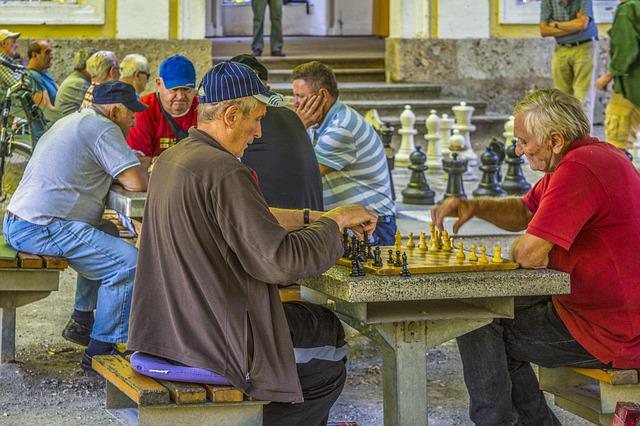
Yes. Programmers can become really good at chess, but only if they make a conscious effort to learn the chess game’s underlying playing strategies.
Being a programmer doesn’t mean you automatically become a good chess player without good practice. The bitter truth is you’ll lose woefully.
Let’s break this down in this article.
Programming – Chess Myth
There’s a common programming – chess myth:
- All programmers are naturally good at chess.
Programmers often think mastering chess wouldn’t be a great deal to them.
And if they wish to start learning chess, it won’t take them much time to get into serious competitive chess tournaments.
In no distant time, they can rise to stardom and probably challenge the likes of the current World Chess Grandmaster, Magnus Carlsen.
Do you think this ideology is correct?
Well, here’s what Jennifer, a web developer has to say:
So I’m learning Web Development… I’m intermediate to advanced in Javascript, so I thought I might be naturally good at chess… or at least decent. I started playing chess a week ago, and I’m honestly beyond terrible. I have taken some tutorials and know the basics of the game.
Do you think the same part of your brain that helps you solve problems with algorithms is the same part that determines if you are a good chess player? Because now I’m doubting my ability as a coder… since I’m so bad at chess.
Okay, let’s not get it mixed up. If you are a programmer, your inability to play a good chess game doesn’t mean you’re bad at programming.
Although there is a slight correlation between them, which we’ll look at further down this article, one doesn’t directly affect the other.
A Logical Perspective
Let’s analyze another set of arguments making rounds for decades.
- The 1st says: “Intelligent people are good at chess.”
“Intelligent” and “Smart” are two words that sometimes mean the same thing, so it’s similar to saying “Smart people are good at chess”
- The 2nd opines that “Programmers are smart.”
Again, let’s assume this statement is true.
Relate both views together.
Since programmers are smart and smart people are good at chess, one can easily conclude that “Programmers are good at chess.”
Well, not so fast, Mr; there are some loopholes in the statements.
Starting with the 1st statement.
Intelligent people are good at chess
Not entirely accurate as it depends on your definition of intelligence.
According to a publication from Brunel University London on “Intelligence and chess,” the concept of intelligence has turned out to be rather elusive and difficult to define.
In 1983, Howard Gardner, an American Psychologist, challenged the traditional notion that there is one single type of intelligence, sometimes known as “g” for general intelligence, that only focuses on cognitive abilities.
He proposed a theory known as the “Gardner’s Theory of Multiple Intelligence” that introduced eight different types of intelligence, namely:
- Logical-Mathematical Intelligence: Good at reasoning, carrying out mathematical operations, and logically analyzing problems.
- Verbal Linguistic Intelligence: sensitivity to the spoken and written language, ability to learn languages.
- Interpersonal Intelligence: Ability to understand other people’s emotions, desires and motivations.
- Bodily-Kinesthetic Intelligence: Good at body movement, performing actions, and physical control.
- Musical Intelligence: Skilled at thinking in patterns, rhythms, and sounds.
- Visual-Spatial Intelligence: Refers to how well one can visualize things.
- Intrapersonal Intelligence: Ability to understand oneself, desires and emotions.
- Naturalistic Intelligence: People with vast knowledge about nature and other species.

Image Source: Theory of Multiple Intelligence
You can watch this 4 mins video to better understand the different intelligence types.
One can’t implicitly say Intelligent people are good at chess because it is highly a visual-spatial game that entails:
- Fluid reasoning: The ability to solve new problems and identify patterns.
- Comprehension knowledge: Like rules for games and vocabulary.
- Short-term memory: How much information you can hold for a short period.
- Processing speed: How quickly you can handle information, like how fast your computer works.
Implications:
- A Botanist with only a high naturalistic intelligence can’t be a good chess player.
- A Mathematician with only a high logical-mathematical intelligence to boost off can’t be a good player.
- A Musical composer with only a high musical intelligence can’t also be a good chess player.
- Same way, one can be a chess genius but a dummy in the outside world.
Here’s a statement from Bobby Fischer (American grandmaster/chess prodigy who won the 1958 U.S championship at the age of 14).
“I object to being called a chess genius because I consider myself to be an all around genius who just happens to play chess, which is rather different.
A piece of garbage like Kasparov might be called a chess genius, but he’s like an idiot savant. Outside of chess, he knows nothing.” – Bobby Fischer, 2001.

Bobby Fischer – American Chess Grandmaster
The widely used test for measuring general intelligence is what we refer to as Intelligence Quotient (IQ).
However, varieties of tests has been designed to measure various intelligence types.
For example, the popular Wechsler test (Wechsler, 1944) has a scale for verbal IQ and a scale for performance IQ (i.e., non-verbal IQ).
A study conducted by Frydman and Lynn provided some evidence that better chess players had higher performance IQ (non-verbal intelligence) scores than the weakest chess players.
A lot of research relating chess to intelligence has been carried out in the past and the results have been pretty mixed.
Some studies have shown a strong correlation indicating that intelligence is a good positive indicator of chess skill, while others have shown a weaker or no correlation.
In the quest to have a standard report, a team of researchers at Michigan state university answered the question through a meta-analysis.
They reviewed all studies relating to chess and intelligence, about 2200 of them, filtered them and took away the ones that weren’t relevant or didn’t meet the quality control measures taken by the team.
After filtering down to about 19 studies and a total of 1800 people, the researchers standardized and combined them into one general analysis.
Their findings across the board regarding fluid reasoning, comprehension knowledge, short-term memory and processing speed indicate that intelligence was strongly associated with chess skills and factors like practice and preparation make you play better.
The study found that intelligence was linked to chess skills for the overall sample, particularly among young chess players and those at lower skill levels.

“A comprehensive new study led by Michigan State University researchers shows that: Intelligence – and not just relentless practice – plays a significant role in determining chess skill”
Despite all these researches, the ambiguity of the word “intelligent” makes it difficult for people to completely agree with the statement: “Intelligent people are good at chess.”
Statement 2:
Programmers are Smart
The fact that one is a programmer doesn’t mean that the person is smart by default.
Programming develops mainly logical-mathematical intelligence with lesser attention paid to other intelligence types.
And that’s why programmers are advised to also develop other non-programming skills like communication, collaboration and time management.
The same applies to every other profession and not just programming.
Nevertheless, a good programmer who is well-grounded in his profession and knows how to tackle problems with self-written code can be considered smart in the real world.
You can read more about this in our article: Are Programmers Smart?

The Connections between Chess and Programming
No doubt, chess and programming are similar in multiple ways as a strong connection exists between a good chess player and a good programmer.
Let’s take a look at some of the similarities below:
| SIMILIARITIES | CHESS | PROGRAMMING | |
|---|---|---|---|
| 1. | Same Intense Study | This involves learning about opening theories, endgame tablebases, middle game strategies, positional playing, tactics and combinations. | Learning about data structures, computer algorithms, study documentation, and understanding Git and GitHub. |
| 2. | Eagle-eye Visualization | A good chess player isn’t just thinking about the next piece to play; he’s visualizing the entire chessboard, analyzing how every move affects the entire game. | Good programmers don’t just write codes for the fun of it. They understand the product to be created and how the different codebases affect the final result. |
| 3. | Strong Imagination | Chess players are creatively endowed. With over 100 strategies in mind, they can recount and replay multiple strategies in their mind even on the battlefield. | Programmers have strong imaginations and will power. Software development involves a lot of creativity. |
| 4. | Pattern Recognition | Playing chess involves recognizing patterns like thematic moves, tactical motifs, manoeuvres, etc. | Programmers recognize design and algorithmic patterns like frequency counter patterns, multiple pointer patterns, sliding window patterns, divide and conquer. |
| 5. | Problem-Solving | A good chess player is very tactical, knows how to handle complex situations and can quickly revert situations. | Programmers solve code problems by research, debugging, and unit testing. |
| 6. | Patience and Deep Focus | Some chess games can span for 6 hours with both players deeply focused on the board, not losing sight of any piece and patiently waiting for their opponent to make a wrong move. | Compiling code can also span hours; projects can take months and even years to complete. Still, programmers remain focused, actively working till the very end. |
| 7. | Spirit of Sportsmanship and Collaboration | Chess players work with teammates comprising about 4-6 chess players alongside a coach. | Programmers work with the design team and other programmers, handling different aspects of the project like front-end and back-end, all reporting to a project manager. |
For mobile/iPad users: scroll sideways to view the complete table.
| SIMILIARITIES | Chess | Programming | |
|---|---|---|---|
| 1. | Same Intense Study | This involves learning about opening theories, endgame tablebases, middle game strategies, positional playing, tactics and combinations. | Learning about data structures, computer algorithms, study documentation, and understanding Git and GitHub. |
| 2. | Eagle-eye Visualization | A good chess player isn’t just thinking about the next piece to play; he’s visualizing the entire chessboard, analyzing how every move affects the entire game. | Good programmers don’t just write codes for the fun of it. They understand the product to be created and how the different codebases affect the final result. |
| 3. | Strong Imagination | Chess players are creatively endowed. With over 100 strategies in mind, they can recount and replay multiple strategies in their mind even on the battlefield. | Programmers have strong imaginations and will power. Software development involves a lot of creativity. |
| 4. | Pattern Recognition | Playing chess involves recognizing patterns like thematic moves, tactical motifs, manoeuvres, etc. | Programmers recognize design and algorithmic patterns like frequency counter patterns, multiple pointer patterns, sliding window patterns, divide and conquer. |
| 5. | Problem-Solving | A good chess player is very tactical, knows how to handle complex situations and can quickly revert situations. | Programmers solve code problems by research, debugging, and unit testing. |
| 6. | Patience and Deep Focus | Some chess games can span for 6 hours with both players deeply focused on the board, not losing sight of any piece and patiently waiting for their opponent to make a wrong move. | Compiling code can also span hours; projects can take months and even years to complete. Still, programmers remain focused, actively working till the very end. |
| 7. | Spirit of Sportsmanship and Collaboration | Chess players work with teammates comprising about 4-6 chess players alongside a coach. | Programmers work with the design team and other programmers, handling different aspects of the project like front-end and back-end, all reporting to a project manager. |
If you’re a programmer wanting to learn chess, having these qualities doesn’t mean you’ll be a chess pro out of the blues.
But it means the entry barrier will be lower for you and with proper practice and consistency, you’ll do well.
Same thing applies if you’re a chess player wanting to start a career in programming.
If this is your case, you can also check out our guide on the best approach for learning to code faster.
Top 35 Chess Principles
In the game of chess, equipping yourself with the right learning resources and strategies will give you an upper edge over your competitors.
Watch this video to learn about the top 35 chess principles.
Conclusion
The fact that one is a programmer doesn’t automatically mean he’s good at chess.
- Chess requires adequate learning and practice.
- One’s intelligence plays a role in chess mastery.
- There are some similarities between chess playing and the art of programming; they tend to reduce the entry barrier for programmers.
- You read this article to the point, meaning you possess enough focus required to be among the top chess grandmaster in your local community.

And that’s a wrap!!!
I hope you enjoyed this article.
If you find it helpful, do share it with friends and coding colleagues.
Recent Comments